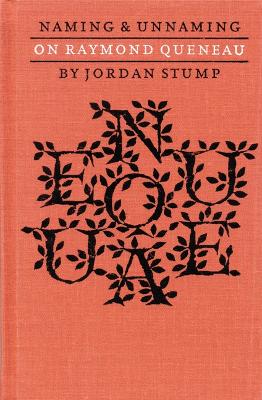Stages
2 total works
Each form of Le chiendent both is and is not what we mean when we say "Le chiendent," yet the friction between their ways of being and that of "the book itself" proves unexpectedly productive, raising troublesome questions about the nature of textuality, reading, language, and knowledge. It also positions us to assess several answers proposed in response to such questions and to wonder about their usefulness. And as we consider those questions, we will have Queneau's novel beside us, further confounding our attempts to answer-for our inability to answer those questions is precisely the point of The Other Book, as it is of Le chiendent.
From the idea that the names of characters offer a more immediate and perhaps even a more intimate understanding of their souls than we might glean from their words and deeds has grown the broad field of inquiry known as literary onomastics. Stump argues that there is another approach to the literary proper name, one that concentrates not on the meaning of names but on the meaning of the use of those names-the ways in which the characters and narrator of a novel address or refer to others.
Naming and Unnaming considers the literary and philosophical implications of names and naming. Stump examines four issues in Queneau's novels-the nature of writing and of creation in general, the possibility or impossibility of knowledge, the relationship between the individual and the group, and the uses of power and control-in relation to which naming emerges as a force both powerful and utterly impotent. By exploring these forces and their evocation, Stump reveals the complexity of both the act of naming and the novels of Queneau.

